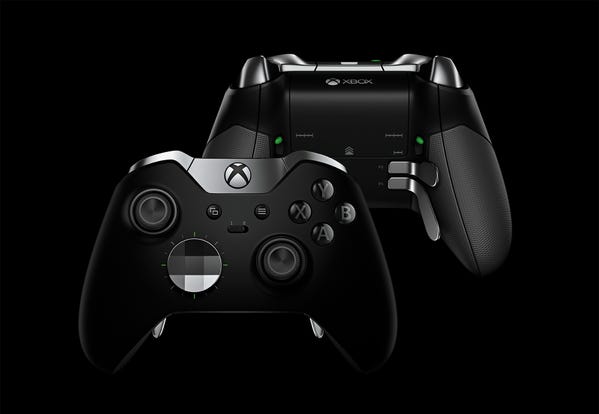Xbox One: Microsoft's talk of hardware upgrades sounds like hot air
You've just got the Xbox One on the right track, Microsoft. Don't go chasing ill-thought-out ideas, says Matt Martin.
"Adding multiple hardware configurations causes headaches for developers, confusion at retail and disappointment for players."
Microsoft seemingly made a massive announcement about the future of Xbox One this week. Phil Spencer, boss of the Xbox business, wants to upgrade the Xbox One hardware over its lifetime.
Like a PC or mobile phone, Spencer wants the Xbox One to have multiple hardware configurations, enabling the console to keep up with advancing technology.
That's big news, right? Huge. Ironically, it's on the level of a new hardware iteration, or even talk of a new console. But there's no solid details beyond Phil Spencer's Big Idea. No press release about the future direction for the console. No roadmap. No update for investors in the billion dollar business.
Is it all hot air?
It certainly sounds it. Like one of those conversations that went a little off script and is styled out to a conclusion that feels logical for an executive under an increasingly hot spotlight. A flappy mouth reined in at the last second. I would imagine there were quite a lot of people working in the Xbox business this week thinking "err, first I've heard of it".
Part of the reason it's been met with shrugs is due to Microsoft's constant u-turns and under-delivery of the Xbox One's features. We can go back over all the reveal announcements that were eventually canned. Or features that are yet to appear - like the idea that all Xbox One consoles could be turned into dev kits eventually. That was another ground-breaking idea that hasn't been executed. A real game-changer that never materialised.
Hardware upgrades for consoles haven't worked significantly in the past - see the Sega 32X, 64DD and Mega CD for historical form. A fixed hardware spec works for consoles because everyone gets the same experience from their game. 60 million people like that idea so far this generation. Adding multiple hardware configurations causes headaches for developers working to different specs, confusion at retail and disappointment for players when a game doesn't run as well as your friends version of the game.
Spencer uses the mobile phone comparison, where we change our handset every year or 18 months. But we don't pay for handsets, we pay for a monthly contract and the hardware is thrown in for "free" knowing we'll get a different one in a year. If you want to talk about a real evolution for console gaming, that rental contract might be a plan to look at in the future.
Microsoft has often spoken about bringing the PC and console gaming ecosystems together since the dawn of the original Xbox. This latest idea almost sounds like Spencer's Xbox One has an inferiority complex in the shadow of the PC. But players don't want the two to be the same, that's partly why different markets exist, isn't it? Try and put an Xbox One game on PC and a bunch of gamers freak the hell out. People argue the value of owning an Xbox One diminishes if you can buy the same games on a PC.
"Microsoft has said in the past that the cloud is going to be its solution to upgrading the Xbox One. But now suddenly, out of the blue, it's not?"
The thing that concerns me the most is that Microsoft has said in the past that the cloud was going to be its solution to upgrading the Xbox One. The cloud is where you'll find extra processing power, extra resources to run those high-end games on a par with the best PC rigs. The cloud is supposed to be the work around that keeps the console relevant for years to come.
But now suddenly, out of the blue, it's not? Now we're expected to believe extra hardware is the way forward? It's almost as if Microsoft is bored of one idea and decided to move on to another. That's a big worry. It's a shiny distraction to a team that should be working on games. The console is set, it's good, we've bought and believe in it.
Now is not the time to ponder hardware upgrades and go tinkering with the box. Now is the time to deliver great games and keep us hooked on those, rather than incremental hardware upgrades that are a great idea but, based on past form, are unlikely to come to fruition.


